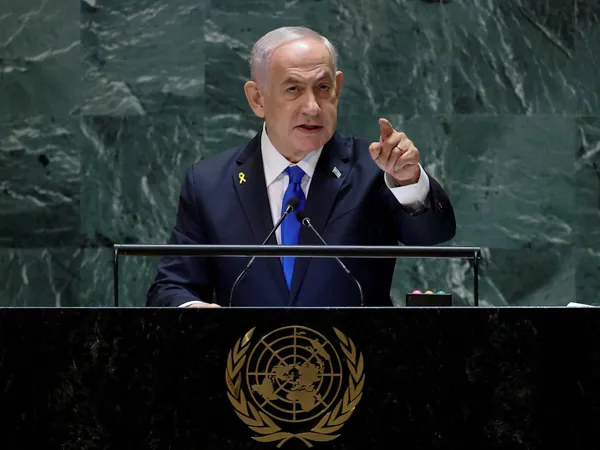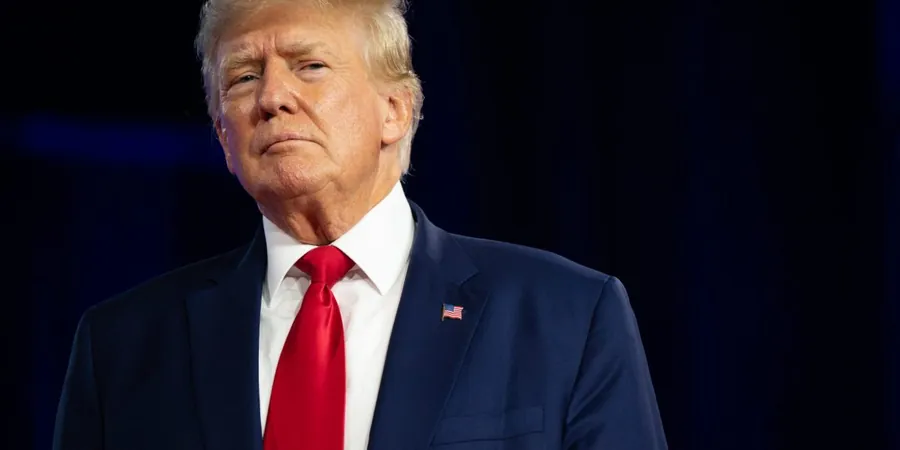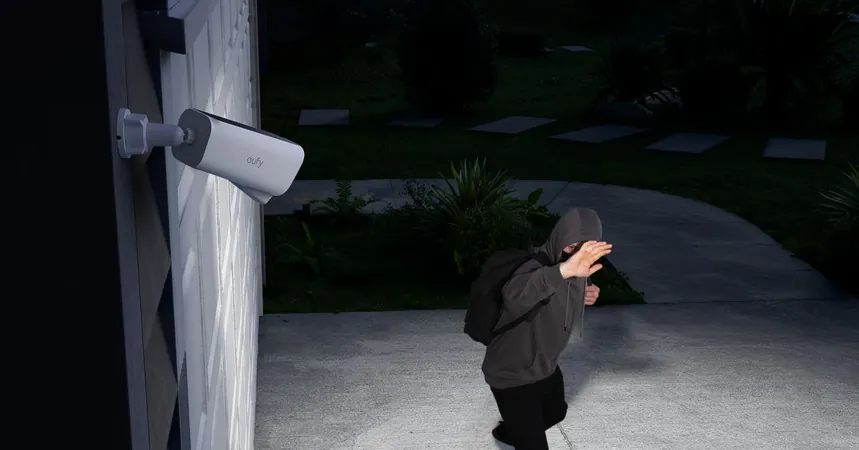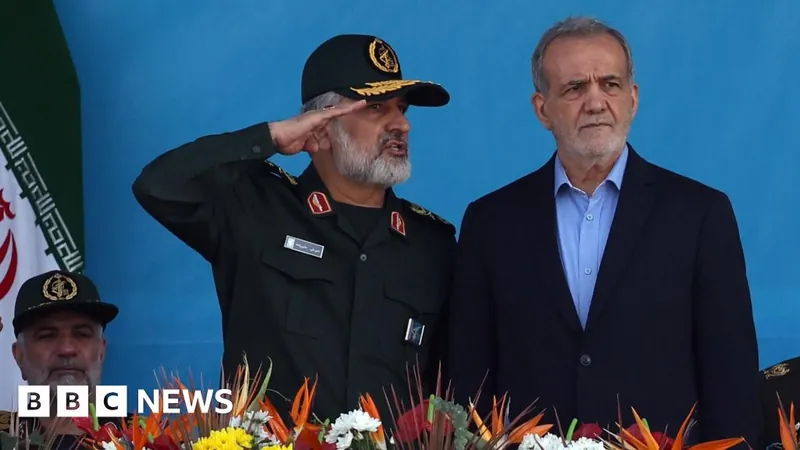
Netanyahu Warns UN: Israel Will Not Back Down Against Gaza and Hezbollah
2024-09-27
Netanyahu's Defiant Stance at the UN
In a powerful address to the United Nations General Assembly, Israeli Prime Minister Benjamin Netanyahu declared that Israel will continue its military operations in Gaza and target the Lebanese militant group Hezbollah, vowing to achieve “total victory.” With hopes for a ceasefire dwindling, tensions continue to escalate in a conflict that poses the threat of a larger regional war.
Background and Context
Netanyahu's speech came amidst a backdrop of stark protests; several delegations walked out as he approached the lectern, while supporters in the audience cheered his commitment to Israel's defense. "I didn’t intend to come here this year. My country is at war fighting for its life," Netanyahu stated. He expressed outrage at what he termed "lies and slanders" directed toward Israel, prompting his decision to confront the assembly directly.
Casualties and Humanitarian Concerns
Since the outbreak of hostilities on October 7, the Palestinian Health Ministry has reported over 41,500 Palestinian fatalities, with more than 96,000 injuries, a tragic toll that includes a disproportionate number of women and children, raising serious humanitarian concerns. Meanwhile, Israel has reported approximately 1,139 casualties from a Hamas-led surprise attack that triggered the latest conflict.
Israel's Stance on Hamas
In his address, Netanyahu insisted that Hamas, the ruling authority in Gaza, should not be involved in any reconstruction efforts, declaring, “If Hamas stays in power, it will regroup and attack Israel again and again.” His stern stance highlights Israel's intention to dismantle Hamas's capabilities entirely.
Challenges to Ceasefire Efforts
Efforts for a ceasefire have been complicated by the involvement of international actors, including the United States, Egypt, and Qatar, who have attempted to broker peace without success. Netanyahu emphasized that the war could conclude only if Hamas surrenders unconditionally and releases hostages. “We will fight until we achieve total victory. Total victory. There is no substitute for it,” he affirmed, claiming that Israeli forces had already destroyed 90% of Hamas’s rocket arsenal.
Reactions from Hamas and International Community
The Palestinian group Hamas countered Netanyahu's claims, denouncing his speech as filled with “blatant lies” and criticized his escalating threats, particularly towards Lebanon. Analysts suggest that the U.S. has effectively sanctioned Israel's actions, equating the justification of its military actions in Gaza with its stance on Russia's invasion of Ukraine.
Confrontation with Hezbollah
Furthermore, Netanyahu addressed the ongoing conflict with Hezbollah, pledging to “continue degrading” the group until operational objectives are met. The situation along the Israel-Lebanon border has escalated dramatically, with reports indicating over 600 deaths in Lebanon due to Israeli airstrikes in recent days.
Netanyahu's Comparisons and the State of Displacement
Highlighting the gravity of the situation, Netanyahu drew parallels to U.S. towns, questioning how long the U.S. would tolerate similar threats: “Just imagine if terrorists turned El Paso and San Diego into ghost towns… Well, I’ve come here today to say: Enough is enough.” This portrayal portrays Israel as a nation enduring intolerable aggression.
Humanitarian Crisis and Global Reactions
The recent violence has prompted significant displacement, with the United Nations reporting over 90,000 people displaced in Lebanon alone since recent escalations began. The severity of the conflict has drawn reactions from world leaders, including Slovenia's Prime Minister, who implored Netanyahu to cease military actions. Meanwhile, the situation remains precarious, with fears escalating that the ongoing violence could lead to an explosive regional conflict.
Conclusion: The Path Forward
As the international community continues to call for a ceasefire, the ramifications of this conflict will be felt long beyond the battlefield. Will Netanyahu's assertion of Israel's right to defend itself lead to peace or further entrench cycles of violence? Only time will tell.




 Brasil (PT)
Brasil (PT)
 Canada (EN)
Canada (EN)
 Chile (ES)
Chile (ES)
 España (ES)
España (ES)
 France (FR)
France (FR)
 Hong Kong (EN)
Hong Kong (EN)
 Italia (IT)
Italia (IT)
 日本 (JA)
日本 (JA)
 Magyarország (HU)
Magyarország (HU)
 Norge (NO)
Norge (NO)
 Polska (PL)
Polska (PL)
 Schweiz (DE)
Schweiz (DE)
 Singapore (EN)
Singapore (EN)
 Sverige (SV)
Sverige (SV)
 Suomi (FI)
Suomi (FI)
 Türkiye (TR)
Türkiye (TR)